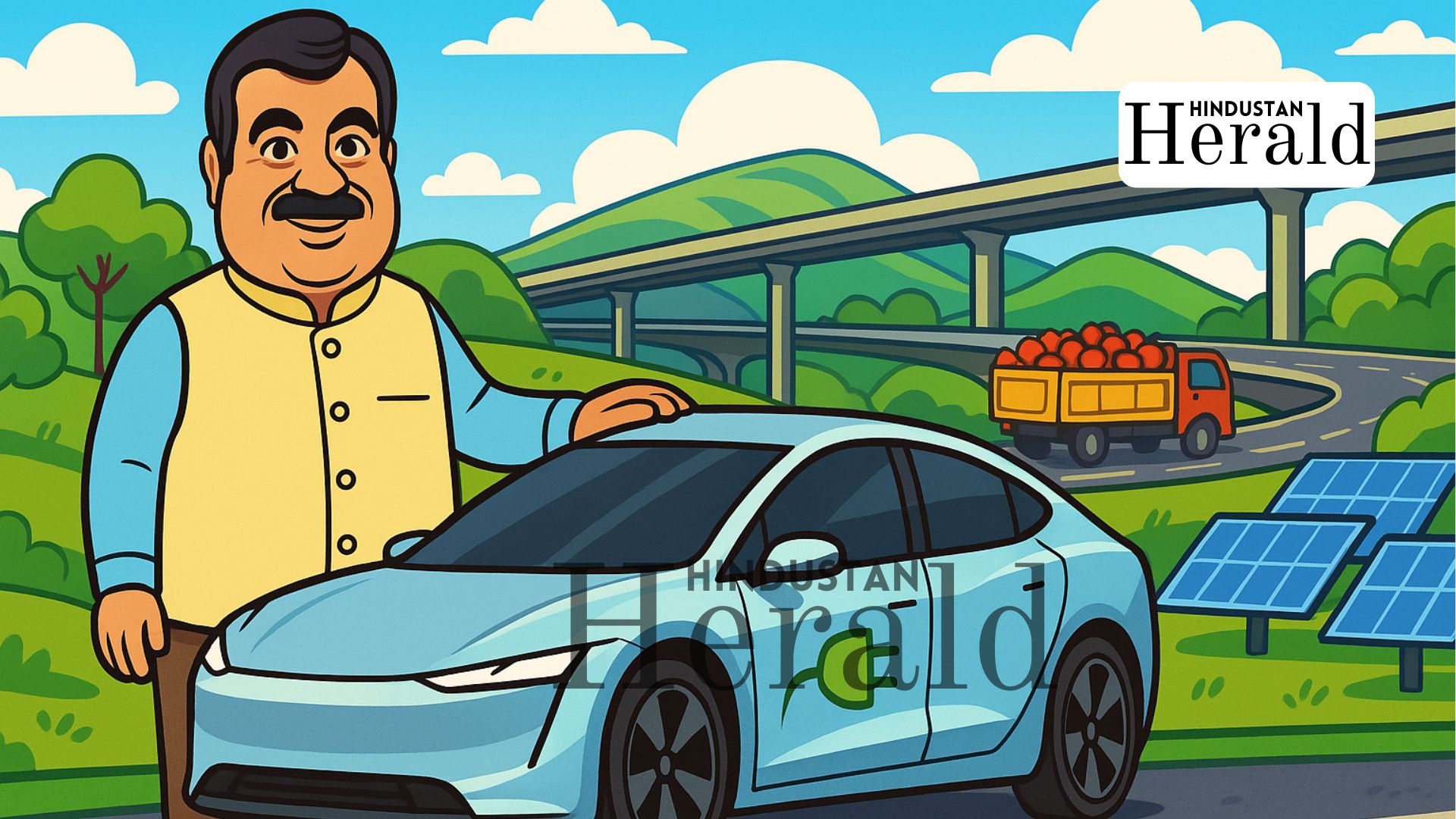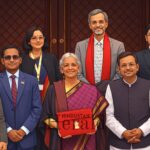New Delhi, September 16: Nitin Gadkari doesn’t slow down. In the span of just a few hours today, the Union Minister managed to set an audacious target for the auto industry, pitch sewage water and crop waste as raw material for highways, and step in to calm an apple crisis in Kashmir. It’s a snapshot of the odd balancing act in Indian policymaking aiming for global dominance while still firefighting very local problems.
India Wants The Top Spot In Automobiles
At the International Value Summit 2025, Gadkari declared that India should become the world’s number one automobile manufacturer within five years.
It’s the kind of line that makes headlines easily. India already has one of the largest auto markets, with Maruti Suzuki, Tata, Mahindra, Hyundai and others selling millions of vehicles each year. The government is also throwing weight behind EVs through subsidies and the PLI scheme.
But becoming number one worldwide? That’s a mountain to climb. China’s BYD and Tesla are reshaping electric mobility, while Japan and Germany still dominate engineering. India also wrestles with shortages of semiconductors and critical minerals things you can’t simply wish away.
Still, Gadkari is betting on scale and demand. He’s always been the minister for big goals, and this is perhaps his biggest yet. Whether industry leaders share his optimism is another question.
Roads Built With Sewage And Stubble
Later in the day, at the Panchjanya Infra Confluence 2025, Gadkari switched topics but not tone. He spoke about highways being built with treated sewage water, and stubble from farms being converted into bio-CNG and bio-bitumen.
According to him, six bio-bitumen refineries are already running. He also insisted that new highways are being designed to handle floods, landslides, and cloudbursts, which have increasingly battered Indian roads in recent years.
It sounds futuristic, almost experimental. Using sewage in construction saves fresh water. Turning crop waste into road material could cut down stubble burning, which chokes north India every winter.
But there’s a catch. Can sewage treatment plants supply enough water to every project site? Will farmers find selling stubble more convenient than burning it? As always, Gadkari paints the picture, and engineers will have to figure out the fine print.
Kashmir’s Apples Stuck On The Highway
And then came the real-world urgency. Gadkari called a meeting after reports that hundreds of apple trucks in Jammu & Kashmir are stranded because of highway blockades.
Apples are the backbone of Kashmir’s rural economy, employing over three million people directly and indirectly. When trucks are stuck for days, fruit rots. Prices collapse. Farmers lose an entire season’s income.
The problem isn’t new. Landslides, weather closures, and security checks often hold up traffic on the Valley’s fragile roads. Farmers say unless there’s an all-weather corridor and better cold storage, their produce will keep suffering.
For Delhi, it’s not just about fruit. It’s about livelihoods, sentiment, and politics in a sensitive region. Gadkari’s intervention today is a reminder of how fragile that balance is.
Big Promises, Fragile Foundations
Look at the day as a whole, and a pattern emerges. On one end, India is being told it will soon outpace China, Japan, and the US in auto production. On the other, sewage water is being repurposed for roadwork and farmers in Kashmir are desperate to move apples before they spoil.
That gap between ambition and ground reality is India’s biggest challenge. Gadkari embodies both sides. He is the minister of impossible-sounding targets, but also the man answering calls from angry farmers stuck on a highway.
For now, the dreams are intact. But they will only matter if the basics roads that stay open, supply chains that don’t snap, policies that survive political cycles are fixed. Otherwise, the country will keep chasing headlines while farmers count losses.
Stay ahead with Hindustan Herald — bringing you trusted news, sharp analysis, and stories that matter across Politics, Business, Technology, Sports, Entertainment, Lifestyle, and more.
Connect with us on Facebook, Instagram, X (Twitter), LinkedIn, YouTube, and join our Telegram community @hindustanherald for real-time updates.
Covers Indian politics, governance, and policy developments with over a decade of experience in political reporting.
Former financial consultant turned journalist, reporting on markets, industry trends, and economic policy.











